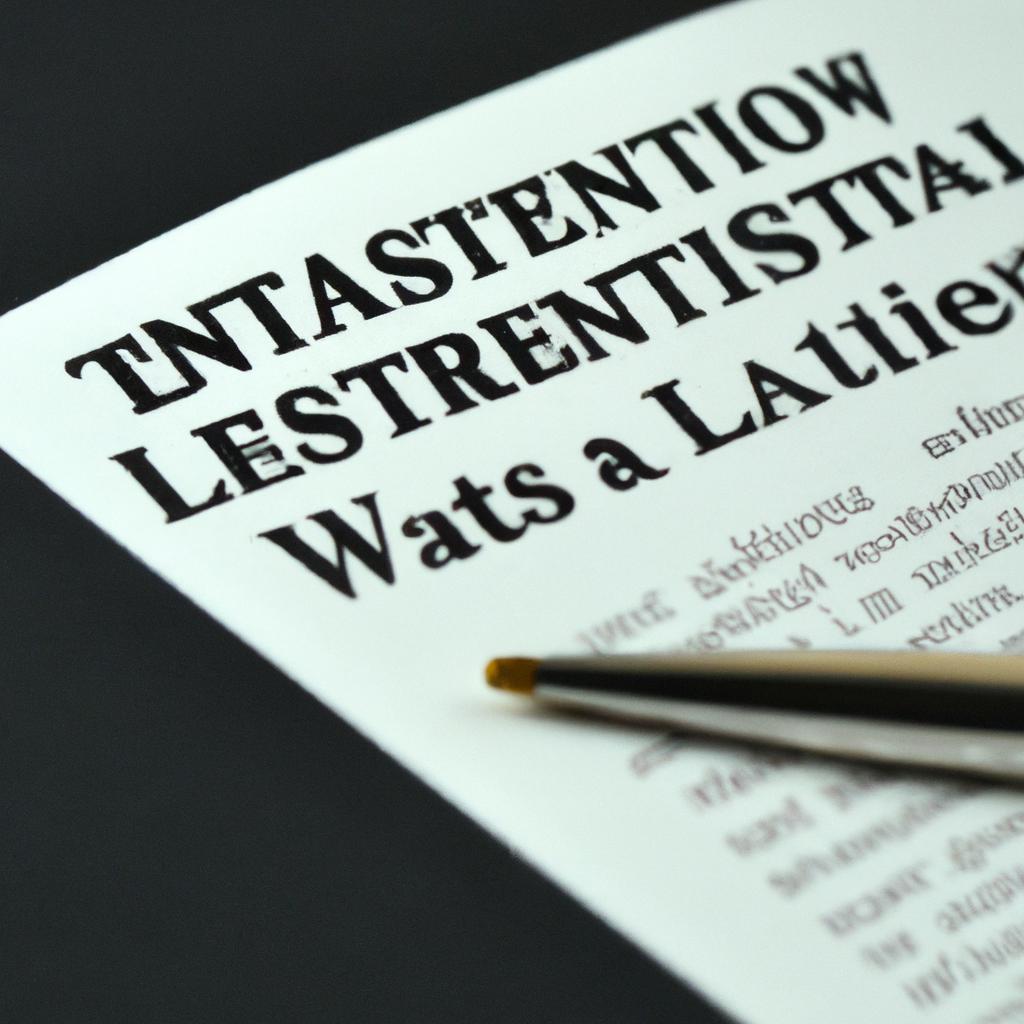In the intricate web of property law, few matters are as fraught with complexity and emotion as the transfer of assets following the death of a loved one in the absence of a will. When navigating the treacherous waters of intestacy, individuals often find themselves adrift without a compass, unsure of how to proceed in securing their rightful inheritance. At Morgan Legal Group, nestled in the heart of New York City, our seasoned practitioners stand ready to guide our clients through the labyrinthine process of property transfer after death without a will. With expertise in estate planning, probate, elder law, Wills, and trusts, we provide the steady hand needed to navigate these turbulent legal waters. Join us as we unravel the mysteries of intestacy, offering clarity and reassurance to those facing the daunting task of untangling the complex web of property rights left behind by a deceased loved one.
Understanding the Laws Governing Intestate Succession in New York State
When an individual passes away without a will in New York State, their estate will be distributed according to the laws of intestate succession. This means that the state will determine who inherits the deceased person’s property based on a predetermined hierarchy of relatives. It is crucial for individuals to understand these laws to ensure that their assets are distributed according to their wishes.
Under New York State law, if someone dies without a will, their estate will typically be distributed in the following manner:
- Spouse and Children: If the deceased is survived by a spouse and children, the spouse will inherit the first $50,000 of the estate, plus half of the remaining estate. The children will inherit the other half.
- Parents: If there is no surviving spouse or children, the parents of the deceased will inherit the estate equally.
- Siblings: If there are no surviving parents, the estate will be divided equally among the deceased person’s siblings.

Key Considerations for Transferring Property Without a Will in Place
When it comes to transferring property after death without a will in place, there are several key considerations that need to be taken into account. Without a will outlining your wishes, the process can become more complex and time-consuming. Here are some important factors to keep in mind:
- Intestacy Laws: In the absence of a will, the transfer of property will be subject to intestacy laws in your state. These laws dictate how your assets will be distributed among your heirs, which may not align with your wishes.
- Probate Process: Without a will, the property will likely have to go through the probate process, which can be lengthy and costly. It’s essential to understand the probate laws in your state and how they will impact the transfer of your property.
| State | Intestacy Laws |
|---|---|
| New York | Spouse inherits everything if no children or parents, otherwise split between spouse and children |

Navigating the Probate Process for Intestate Estates in New York
In New York, when someone passes away without a will, their estate is considered intestate. This means that the distribution of their assets will be determined by state laws rather than the deceased’s wishes. can be complex and time-consuming, as there are specific rules and procedures that must be followed.
One of the first steps in the probate process for an intestate estate is to determine who the deceased’s legal heirs are. In New York, these heirs are typically the surviving spouse and children. If there is no surviving spouse or children, other relatives such as parents, siblings, or nieces and nephews may be entitled to a share of the estate. Once the heirs have been identified, the court will appoint an administrator to manage the estate and oversee the distribution of assets. It is essential to consult with an experienced probate attorney to ensure that the process is handled correctly and that all legal requirements are met.
| Key Points: |
|---|
| Intestate estates in New York are subject to state laws for asset distribution |
| Legal heirs are determined by the court |
| Appointment of an administrator is required for estate management |

Consulting with an Experienced Estate Planning Attorney for Guidance on Property Transfer Proceedings
If you find yourself facing the daunting task of navigating property transfer proceedings after the death of a loved one without a will, it is essential to seek guidance from an experienced estate planning attorney. At Morgan Legal Group, our team of legal professionals specializes in estate planning and can provide you with the expertise and guidance needed to ensure a smooth transfer of property. Without a will in place, property distribution can become complex and overwhelming, which is why consulting with an attorney is crucial.
During a consultation with one of our experienced estate planning attorneys, we can help you understand the intricacies of property transfer proceedings, including the legal requirements and steps involved in transferring assets. By working with us, you can rest assured that your loved one’s property will be distributed in accordance with New York state laws, avoiding any potential disputes or complications. Don’t tackle the process alone – let Morgan Legal Group guide you through the property transfer proceedings after the death of a loved one.
Q&A
Q: What happens to a person’s property if they die without a will?
A: When a person dies without a will, their property will be distributed according to the laws of intestacy in their state.
Q: Who has the authority to transfer the property of a deceased person without a will?
A: The court-appointed administrator or executor of the estate will have the authority to transfer the property.
Q: How is property transferred after death without a will?
A: The administrator or executor will identify all assets of the deceased, pay off any debts, and distribute the remaining property to the deceased’s heirs as determined by the laws of intestacy.
Q: Can family members dispute the distribution of property in the absence of a will?
A: Yes, family members or other potential heirs can challenge the distribution of property in court if they believe they are entitled to a share of the estate.
Q: What steps can be taken to prevent property transfer issues after death without a will?
A: The best way to avoid property transfer issues after death is to create a comprehensive will that clearly outlines the deceased person’s wishes for the distribution of their property.
The Way Forward
In conclusion, the transfer of property after death without a will can be a complex and challenging process. It is important for families to seek legal guidance and support to navigate the various legal requirements and ensure a smooth transition of assets. By understanding the laws and regulations surrounding intestate succession, individuals can better prepare for the unexpected and protect the interests of their loved ones. While the process may be daunting, with the right knowledge and resources, families can honor the wishes of the deceased and secure the future of their estate. Remember, it is never too early to start planning for the future and to ensure that your property is transferred according to your wishes.

